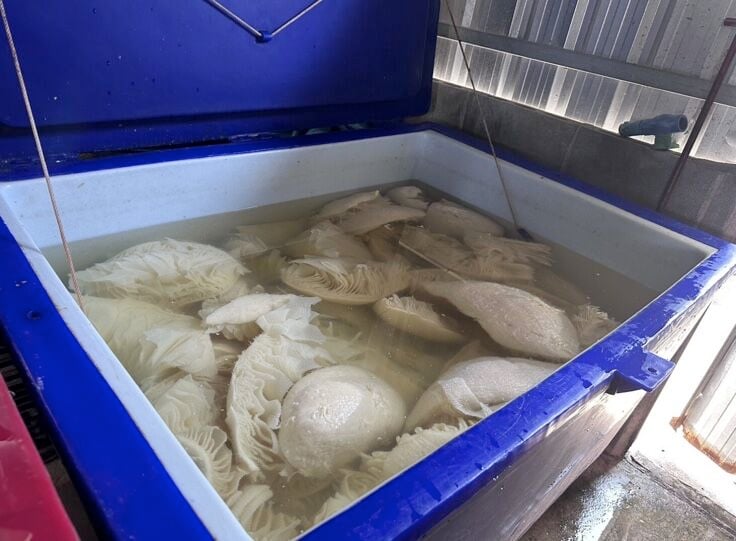Illegal animal carcass imports uncovered in Chon Buri raid

Thailand‘s Department of Livestock Development discovered an illegal import of animal carcasses in the Panthong district of Chon Buri. Authorities have confiscated over 1,200 kilograms of tainted products, which have undergone testing for formalin contamination.
Dr Somchuan Rattanamangkalanont, the director-general of the department, revealed that the investigation located an illegal food factory in Panthong. Niday Chutiphon Siri Mongkolrat, the director of the Veterinary Quarantine and Detention Department, assigned Jiraphat Insuk, Head of Chonburi Animal Quarantine Station, and officers from Chonburi Animal Quarantine Station of Chonburi Livestock Office, to inspect the location with police.
The officials found that the factory had been registered as a limited partnership, producing pig intestines, cuttlefish, and sabayon for the local and neighbouring grill shops. Authorities discovered 39 boxes of frozen intestines, weighing 500 kilograms, believed to be imported from Germany. In addition, they found a 200-kilogram container of processed intestines soaked in sodium hydroxide and formalin, two containers filled with sabayon immersed in sodium hydroxide, hydrogen peroxide, and formalin, weighing 400 kilograms, and a container of cuttlefish soaked in formalin weighing 100 kilograms.
Dr Somchuan explained that none of the discovered carcasses had the required documentation, nor did they have documentation detailing the animal’s movement. Preliminary testing confirmed the presence of formalin in the sabayon, intestines, and cuttlefish, making them liable to the Animal Epidemic Act of 2015, Article 31. Importing animal carcasses without permission is punishable by up to two years of imprisonment or a fine of up to 200,000 baht under Article 68. Additionally, the absence of documents on carcass transportation is punishable under Article 65, with potential imprisonment for up to two years, or a fine of up to 40,000 baht.
The violation of the Food Act, 1979, Article 25 (1), which prohibits producing or selling impure food, carries penalties under Article 58, including potentially up to two years’ imprisonment or a fine of up to 20,000 baht.
Authorities have seized and impounded more than 1,200 kilograms of products, giving the business owner 15 days to present the necessary documents. Failure to do so will result in legal action, and further investigations will be conducted to prosecute those who unlawfully import products at the expense of consumers, Dr Somchuan concluded.
Latest Thailand News
Follow The Thaiger on Google News:


























